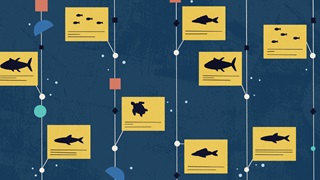The Future of Learning: The Evolving Classroom
Episode 67
.jpg?h=726&w=1290&la=zh&hash=2E96B17233E29D0E2B280E3789EFBBF2)
Stat: 30 percent. The amount of jobs worldwide that could become automated by 2030.
Story: In part two of our series on learning, join guest host Ray Suarez as he interviews teachers and experts about the evolving classroom and how teachers are trying to prepare students to be flexible, motivated, and lifelong learners to prepare for jobs that haven’t been invented yet.
Related resources:
The Future of Jobs and Jobs Training


















